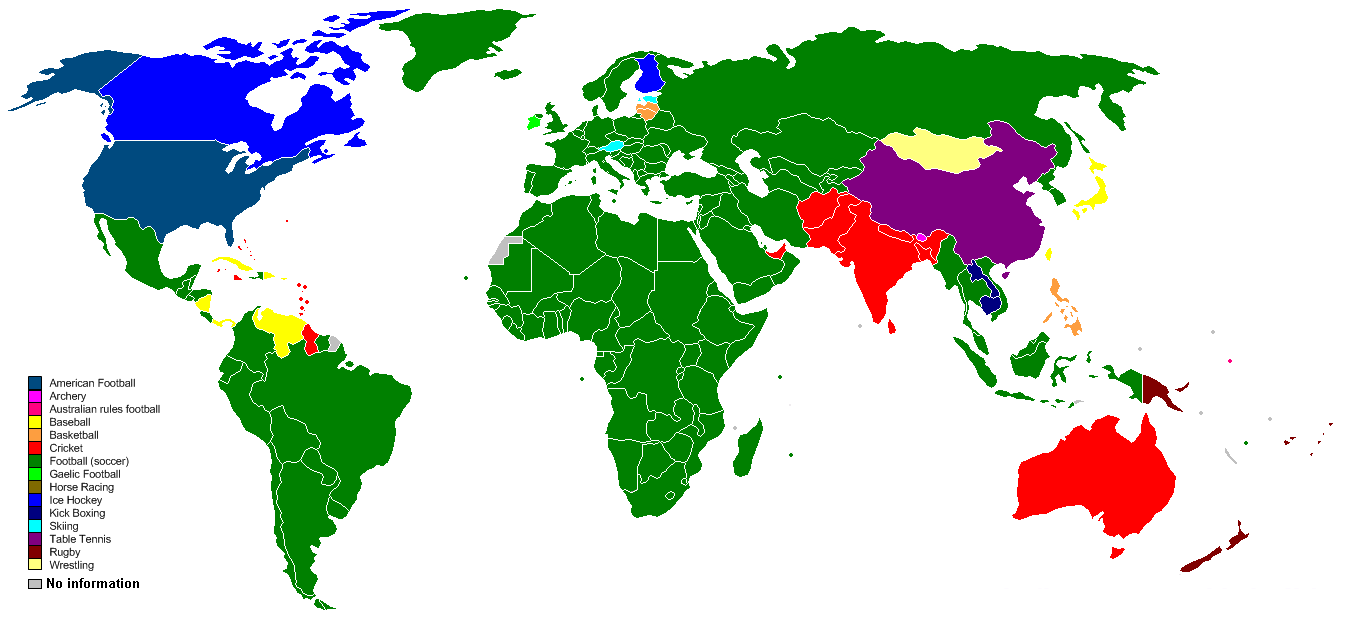Introduction
Sports have a universal language, transcending cultural and linguistic barriers to unite people worldwide. However, the popularity of sports varies greatly from country to country, reflecting unique cultural, historical, and social contexts. In this article, we embark on a journey to explore the most popular sports in different countries around the world, highlighting the diverse and fascinating landscape of global sports culture.
- United States – American Football
American football reigns supreme in the United States, with the National Football League (NFL) attracting millions of fans. The Super Bowl is one of the most-watched television events in the country, with over 100 million viewers tuning in annually. College football is also extremely popular, with top teams like Alabama and Notre Dame boasting massive followings.
- Brazil – Football (Soccer)
Football is the lifeblood of Brazil, with the national team winning five World Cup titles. The country’s passion for the sport is unmatched, with iconic stadiums like Maracanã hosting electrifying matches. The Brazilian league, Serie A, is also highly competitive, with top teams like Flamengo and Corinthians enjoying massive support.
- India – Cricket
Cricket is the most popular sport in India, with a massive following and a rich history of producing legendary players like Sachin Tendulkar. The Indian Premier League (IPL) has further boosted the sport’s popularity, with top teams like Mumbai Indians and Chennai Super Kings attracting huge crowds. The national team has also enjoyed success, winning the Cricket World Cup in 2011.
- China – Table Tennis
Table tennis is China’s national pastime, with the country dominating international competitions. The sport requires precision, speed, and strategy, making it a favorite among the Chinese population. Top players like Ma Long and Ding Ning are household names, with the national team winning numerous Olympic and World Championship titles.
- Australia – Cricket and Rugby
Australia is passionate about both cricket and rugby, with the national teams enjoying immense success in both sports. The iconic Melbourne Cricket Ground and Sydney Cricket Ground host thrilling matches, while the rugby team, the Wallabies, has won the World Cup twice. The National Rugby League (NRL) is also highly competitive, with top teams like the Sydney Roosters and Melbourne Storm enjoying massive support.
- Japan – Sumo Wrestling
Sumo wrestling is an ancient and revered sport in Japan, with professional sumo wrestlers (rikishi) competing in grand tournaments (basho). The sport requires strength, technique, and mental discipline, with top wrestlers like Hakuho and Asashoryu enjoying legendary status.
- South Africa – Rugby
Rugby is a beloved sport in South Africa, with the Springboks (national team) winning the World Cup twice. The country’s tumultuous history has made rugby a symbol of unity and national pride, with top teams like the Bulls and Stormers enjoying massive support.
- Argentina – Football (Soccer)
Football is a religion in Argentina, with the national team producing legendary players like Lionel Messi and Diego Maradona. The iconic Estadio Monumental Antonio Vespucio Liberti hosts intense matches, with top teams like Boca Juniors and River Plate enjoying massive followings.
- Germany – Football (Soccer)
Football is the most popular sport in Germany, with the national team winning four World Cup titles. The Bundesliga (top league) attracts massive crowds, with iconic stadiums like the Allianz Arena hosting electrifying matches. Top teams like Bayern Munich and Borussia Dortmund enjoy massive support, with the country’s passion for the sport unmatched.
- United Kingdom – Football (Soccer)
Football is the most popular sport in the UK, with England, Scotland, Wales, and Northern Ireland each having their own national teams and leagues. Iconic stadiums like Wembley and Old Trafford host thrilling matches, with top teams like Manchester United and Liverpool enjoying massive followings.
Conclusion
The most popular sports in different countries around the world reflect the unique cultural, historical, and social contexts of each nation. From American football in the United States to sumo wrestling in Japan, each sport has its own distinct flavor and following. This diversity is what makes global sports culture so rich and fascinating, uniting people across borders and continents.
